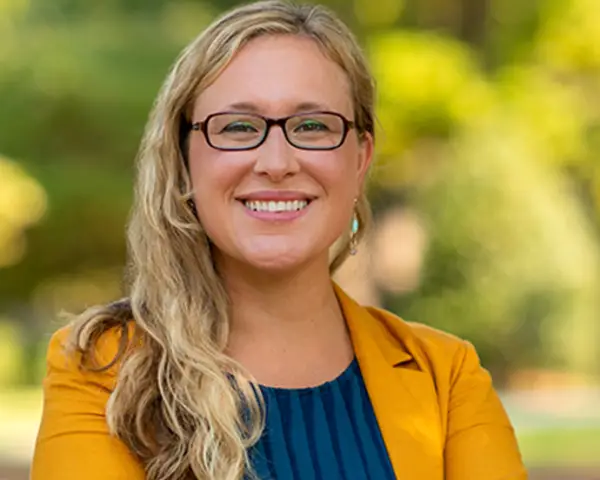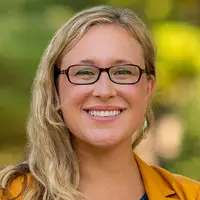Climate Changes: Water Sources | Webinar
Date
Location
United States
Watch the Recording and Download the Presentation
How a changing climate affects the food, energy, and water nexus
Adapting to climate change has been a key issue in the examination of the food, energy, water (FEW) nexus. In California, FEW nexus issues and climate change adaptation are a top priority for the agriculture sector, balancing limited supplies of water with the need to produce a significant portion of U.S. produce. The consecutive occurrence of drought and reduction in natural water availability over the past several decades requires searching for alternative water sources. One alternative irrigation water source that could be further expanded is oilfield produced water (OPW) generated from oilfields adjacent to agricultural areas. This practice started in the 1990s but is gaining popularity in other states and regions looking to adopt similar beneficial use practices. To evaluate whether expanded OPW usage could provide a safe and sustainable irrigation water source, we studied the potential crop health and human health risks of utilizing OPW to irrigate crops in the California Central Valley.
As part of the Climate Changes Webinar Series, this webinar covers the need for alternative irrigation water sources and key findings from a Duke and RTI International study funded through a U.S. Department of Agriculture National Institute for Food and Agriculture grant, and a conversation on the growing application of FEW nexus research globally.
Learn more about:
- The interconnectedness of food, energy, and water systems,
- the need for safe and sustainable water to support food production,
- and growing applications of FEW nexus research globally.
Meet the Presenters

Andrew “AJ” Kondash, Research Environmental Scientist, RTI International
Andrew “AJ” Kondash serves as a Research Environmental Scientist, where he analyzes the joint impacts of energy development, food resilience, and environmental contamination on human health by combining analytical chemistry with geospatial and large database analysis. His background working with policy, community, and scientific leaders across the world has helped him contribute to a diverse range of projects across RTI, including examining the water quality and human health risks associated with the reuse of oilfield produced water for crop irrigation.

Jennifer Hoponick Redmon, Director, Environmental Health and Water Quality, RTI International
Jennifer Hoponick Redmon serves as Director, Environmental Health and Water Quality at RTI International and by trade is a Senior Environmental Health Scientist and Chemical Risk Assessment Specialist. Her educational background integrates the scientific and policy areas of environmental chemistry, toxicology, risk assessment, environmental policy, and natural resource management. Ms. Redmon leads multi-disciplinary and community-engaged environmental research projects. She is particularly interested in identifying chemicals in the environment, supporting risk communication and mitigation measures to improve environmental health outcomes, and building resiliency in the food, energy, and water nexus.

Avner Vengosh, Distinguished Professor of Environmental Quality, Duke University
Dr. Avner Vengosh is a Duke University Distinguished Professor of Environmental Quality at the Nicholas School of the Environment. Vengosh and his team have studied the energy-water nexus, conducting pioneer research on the impact of hydraulic fracturing and coal ash disposal on the quantity and quality of water resources in the U.S. and China. He has also investigated the sources and mechanisms of water contamination in numerous countries across the globe, including salinity and radioactivity in the Middle East, uranium in India, fluoride in Eastern Africa, arsenic in Vietnam, and hexavalent chromium in North Carolina and China. As part of these studies, his team has developed novel geochemical and isotopic tracers that are used as fingerprints to delineate the sources of water contamination and evaluate potential risks for human health. He is a Fellow of the Geological Society of America (GSA) and International Association of Geochemistry (IAGC). In 2019, 2020 and 2021 he was recognized as one of the Web of Science Highly Cited Researchers. He serves as an Editor of GeoHealth and on the editorial board of the journal Environmental Science and Technology. He has published 165 scientific papers in leading international journals.
Additionally, the study highlighted in this webinar is featured in a new book “Water Quality Impacts of the Energy-Water Nexus,” (Cambridge University Press) by Dr. Avner Vengosh and Dr. Erika Weinthal. In the book, Vengosh and Weinthal evaluate the direct and indirect water utilization and the water quality implications induced from using global fossil fuels. Over-utilization of global water resources and their depletion pose major risks for many countries, especially for those that are water-poor but seek to develop unconventional oil and gas reserves.

